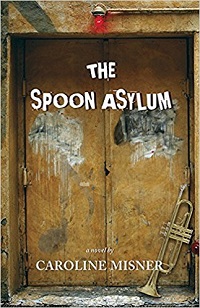| ________________
CM . . . . Volume XXIV Number 38. . . . June 1, 2018
excerpt:
When Haven Cattrell is abandoned by his father in the small northern Ontario town of Davisville, he can’t imagine what the future holds. He knows he won’t be happy living with his grandmother, but he also recognizes that he has no money and so doesn’t seem to have many options. In the Depression of the 1930’s, work is hard to find. Luckily, he is able to find a summer job at a nearby Camp Nokomis, a summer camp for girls. Caroline Misner presents an interesting protagonist in Haven. As a city kid, he must learn the ropes very quickly once he starts work at the camp. He must adapt to new ways of doing things and new people, and, as the ‘new kid’, he is naturally the target of some practical jokes. As the novel progresses, Haven learns a great deal, not only in the practical sense of how to set a table and do some basic cooking but in the sense of learning about himself on a deeper level. He is introduced to jazz music and finds something in it that speaks to him unlike anything he has ever experienced. As well, Haven discovers more about his family background and also meets his first love. Other characters in The Spoon Asylum are as interesting as Haven. At the camp, he meets Wetherby and his son Jude, both black jazz musicians who have been out of work thanks to the effects of the Great Depression of the 1930’s. Another musician who has arrived in the area after riding the rails as a vagrant is Marcus who is employed at the boys’ camp across the lake. All three musicians play major roles in fostering Haven’s love of music and his growing talent. Among the female characters there is the indomitable Miss Nokomis, the owner and director of the camp. In many ways, she is not just what she appears to be, and this becomes more interesting and evident as the story progresses. Among the campers, readers meet Mabel and Charlotte. Both girls intrigue Haven and help him discover what it means to love someone and develop a meaningful relationship with her. Misner creates an entire world in the book, helping her young adult readers understand the realities of the Great Depression, an era of working hard, making do and having little or nothing to show for one’s efforts. As well, the author brings her readers into the world of early jazz music and musicians. On the darker side, readers realize that racism and anti-Semitism were part of life, even in a small, seemingly sheltered, community. As well, Misner gives her readers a sense of northern Ontario with her setting of a summer camp on a lake. The campers swim and canoe and enjoy the many activities associated with camp holidays. Although the small town is not far away, the girls usually only visit to attend church on Sundays. Otherwise, their life is one of lake and forest and the solitude of nature. The title of the novel is open to interpretation. Certainly the camp is an asylum for both the staff and the girls. It provides a place of refuge, safety and sanctuary on a variety of levels for the characters. But there are hints of the ‘insane asylum’ meaning of the word as well. The spoon of the title may refer to the utensils of the kitchen where both Jude and Haven work or to the musical instrument which seems to give so much joy to Jude when he plays. The Spoon Asylum will appeal to many different readers. Adventure and romance, pathos and humour are sprinkled throughout the story. Musicians will enjoy reading about the instruments played by various characters as well as the references to some of the great composers, singers and songs of the jazz age. Students interested in history will be immersed in the Depression years of the 1930’s as well as seeing the results of the racism and anti-Semitism at that time. Caroline Misner has written a novel which has wide appeal, interesting and memorable characters, an insightful understanding of the 1930’s Depression era, and a meaningful coming-of-age theme for young adults. Highly Recommended. Ann Ketcheson, a retired teacher-librarian and teacher of high school English and French, lives in Ottawa, ON.
Next Review |
Table of Contents for This Issue
- June 1, 2018. |
